Organic foods have become more prevalent in recent years, and for a good reason. Organic foods are healthier than their conventional counterparts, and they taste better, too! But what are organic foods, exactly? And why should you buy them? Organic foods have been grown without the use of pesticides, herbicides, or other chemicals. They also won’t use genetically modified organisms (GMOs) in production. Instead, organic farmers rely on natural methods to control pests and diseases and fertilize their crops. To know which foods are best to buy organic, this article will look at the specific foods you should always buy organic!
Meat

Conventionally-raised animals receive chemicals and hormones to make them bigger faster. Chances are, the meat you buy at your local supermarket is full of these chemicals. One particularly harmful chemical that used to be common when feeding beef cattle was DES. It caused reproductive problems in both humans and animals, but luckily it has since been banned. The meat from animals with additional hormones is also different from the meat of those who haven’t. One study discovered that when men consumed farm-raised salmon, their blood levels of testosterone dropped 23 percent after just three weeks! On the other hand, organic meats are healthier for you and will not cause any potential problems with hormones.
Dairy

Conventional dairy cows may receive hormones and antibiotics, which end up in the milk that goes into commercial products. In addition, pasteurized milk, cheese, ice cream, and yogurt (pasteurized unless otherwise stated) also contain these chemicals. Fortunately, organic dairy products must come from cows without using growth hormones or antibiotics. They also cannot be made to eat animal by-products, and their feed cannot contain genetically modified organisms (GMO). The “USDA Organic” seal on the packaging can easily identify most organic dairy products.
Eggs
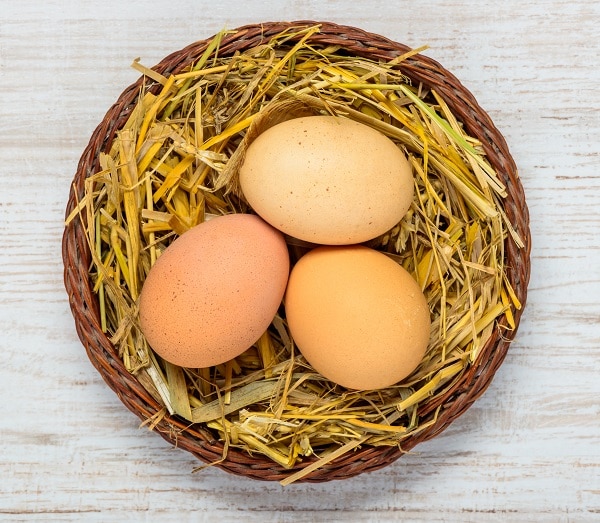
Conventional eggs come from chickens that are fed antibiotics and pesticide-laden feed. The yolks of these eggs are also orange in color, resulting from pigments added to their feed. These chickens live in very tight spaces, which can cause them to get aggressive. Through antibiotics, farmers can control their egg-laying cycles, which makes them lay eggs almost every day. Organic eggs come from chickens that do not get feed with these additives. Their coops must be large enough for the animals to move around freely and spread their wings. The hens also never receive antibiotics or growth hormones; they get the chance to molt naturally.
Leafy Greens

Leafy greens include kale, Swiss chard, collards, spinach, and salad greens. Conventional leafy greens that you buy in the supermarket or find at your local farmer’s market usually come from farms where all crops get sprayed with pesticides. When we eat these vegetables raw, we’re ingesting those chemicals along with them. Organic leafy greens are not only healthier for you, but they are also better for the environment. The chemicals used in conventional farming cause soil erosion and water contamination when the chemicals they use run off into our waterways.
Strawberries
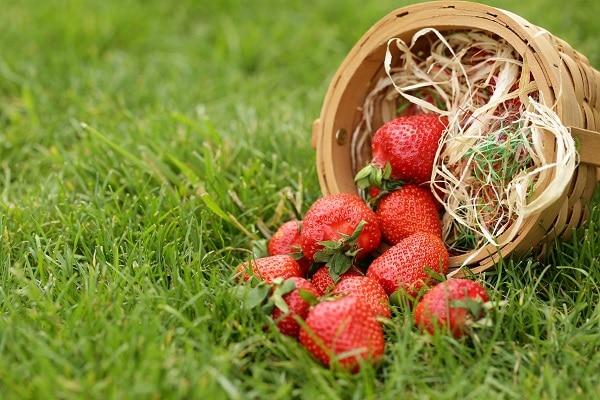
Strawberries are one of the top five fruits that you should always buy organic. Unfortunately, conventionally grown strawberries are very high in pesticide residues, which is why they’re on this list! On average, 6 to 17 different pesticides are detected on strawberries tested by the USDA. Organic strawberries do not contain these harmful chemicals; however, there may be slight variations in their taste due to the lack of chemicals. The good news is that even if you don’t like organic strawberries, you’re consuming fewer pesticides when you buy them!
Apples
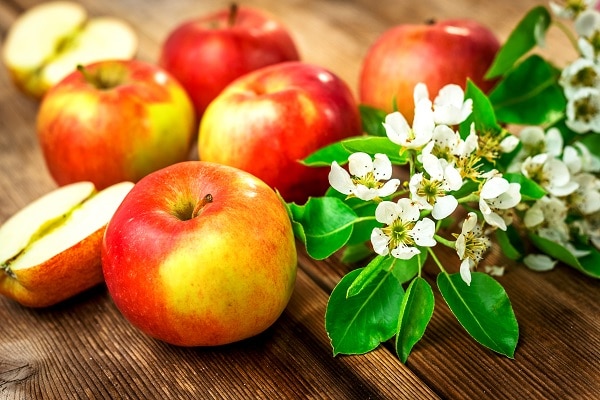
Apples are also one of the top fruits that you should always buy organic. Conventional apples have very high concentrations of pesticides, herbicides, and fungicides. They are often grown with chemical-heavy fertilizers as well. Most non-organic apples also have a wax coating, which helps to protect them from mold. Unfortunately, even if you try to remove this wax coating before eating your apple, the chemicals used in its production are still there. The “USDA Organic” seal can help identify organic apples on the box or bag they come in.
Peaches
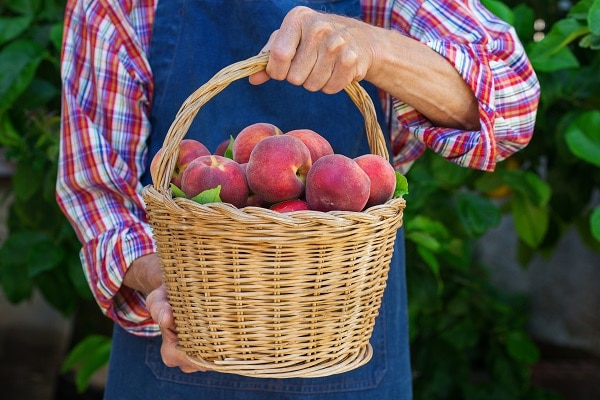
Peaches are another fruit that you should always buy organic. Conventional peaches are very high in pesticides. One study, conducted in 1996, found that when kids consumed one conventional peach a day for five days in a row, they increased their pesticide intake by 60%. Organic peaches are grown without the use of fertilizers or pesticides. They also cannot be sprayed with herbicides and fungicides. So, for a healthier snack, buy organic peaches!
Grapes
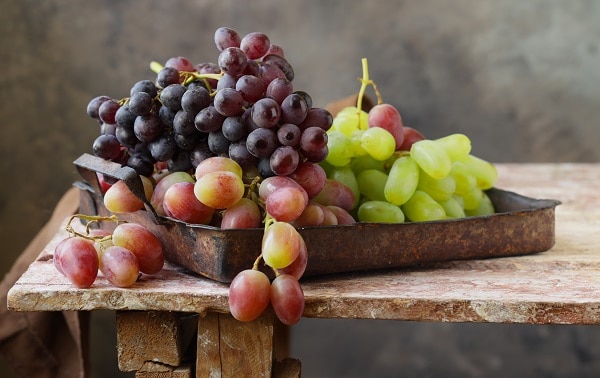
Conventionally grown grapes are very high in pesticide residues, which is why they’re on this list! One study conducted by the USDA in 2011 showed that 75% of grapes tested had chemical residue on them. So when we consume grapes, we’re also ingesting those chemicals along with them. Organic grapes mean they are grown without the use of pesticides and herbicides. The “USDA Organic” seal is the only way to guarantee that you’re getting a true organic grape every time!
Peppers
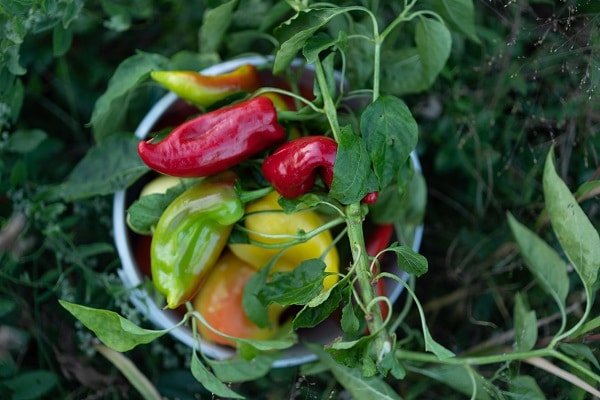
Peppers are among the top foods that you should always buy organic. Conventional peppers have very high concentrations of pesticides and fungicides on them. In fact, one study found up to 14 different chemicals on the surface of a single pepper! In addition, peppers are particularly susceptible to fungal diseases, which means that the chemicals used to treat them can seep into other areas of the plant and affect it. Like apples, peppers also often have a wax coating on their skin. This makes it difficult when trying to remove any pesticides and fungicides. So although buying them organic means they won’t last as long in the fridge, it is still better for your health in the long run.
Conclusion
As you can see, there are several foods that you should always buy organic. If you can’t afford to buy all organic produce, try and stick with the foods on this list. Buying food that has been grown organically will mean a healthier body and planet for us all! One great way to get organic food is to find local farms that grow their own produce. Most of these farms won’t be able to afford organic certification, but you can rest assured that the fruit and vegetables on sale there will be genuinely organic!


